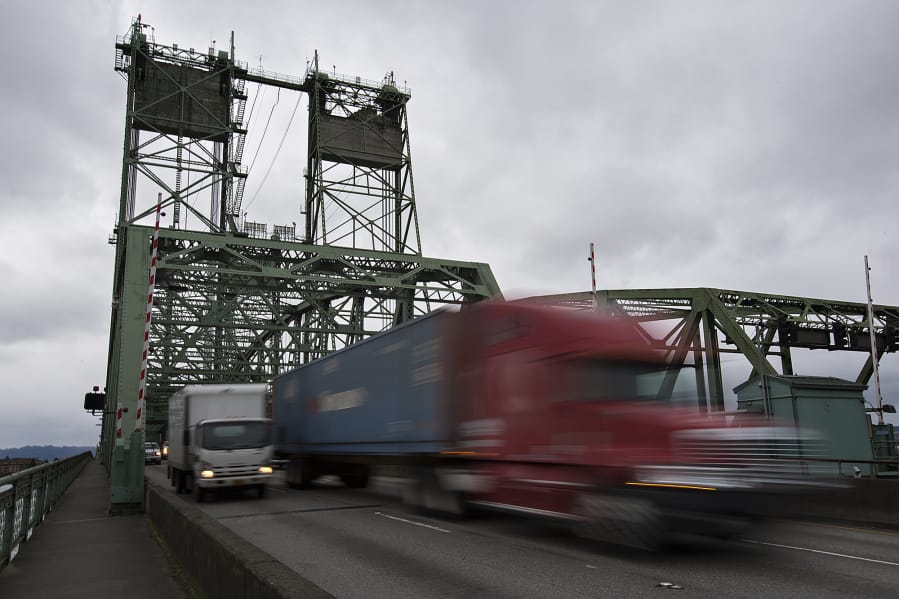Washington’s 2020 legislative session kicks off this week, with an agenda packed with items that have the potential to impact Southwest Washington.
Those items were front of mind last month when a group of the region’s legislators met to discuss plans for the session with local business owners and groups. Many who attended the meeting raised concerns of their own, and The Columbian reached out to several of them to learn which legislative issues are likely to make a splash in Clark County.
Here’s what they told us:
CREDC and Chamber
One common goal among nearly all of Clark County’s business groups is making progress on an Interstate 5 Bridge replacement. The Columbia River Economic Development Council, the Greater Vancouver Chamber of Commerce and Identity Clark County all listed the bridge at the top of their joint legislative agenda list. The Clark County Transportation alliance also listed the bridge replacement as its biggest action item.
Education is another area of overlap. The CREDC, ICC and chamber’s joint list prioritizes support for construction of the Clark College Boschma Farms Campus and the design phase of the WSU Vancouver Life Sciences Building.
Several of the chamber’s priorities focus on tax policy with an eye toward avoiding any new or additional taxes on local businesses, such as a capital gains excise tax or any potential taxes implemented to make up for the revenue shortfall if Initiative 976 survives its current court challenges.
Construction and development
The Clark County branch of the Building Industry Association is taking its cues from its state-level organization, according to Andrea Smith, communications manager for the BIA of Clark County.
Jan Himebaugh, government affairs director for the BIA of Washington, said the organization will focus on cutting red tape to try to address the housing crisis though a “more homes, more accountability, less paperwork,” approach. That lens will shape the agency’s assessment of every bill, she said.
In terms of specific policy goals, she said the agency would push for new permit timeline accountability measures intended to hold municipal government staff to standard 120-day permit review periods. There will also be a push to try to reduce redundancy, she said, such as when the SEPA review process overlaps with other permitting processes.
Additionally, Himebaugh said, the group would focus on trying to make new resources available for apprenticeships and other opportunities for youth to start careers in the industry.
Clark County homebuilder Ginn Group offered similar comments about housing affordability, and said it hoped to see a bill that would expand the multifamily tax exemption program to areas that are within urban growth boundaries but outside of city limits.
Vapor industry
Shaun D’Sylva is a board member of the newly formed Washington State Smoke-Free Trade Association, a lobbyist group that has formed in response to the flavor ban that has decimated the vapor shops in the state. The group is having a difficult time getting face time with legislators, he said. “We’d like to engage in dialogue, but we can’t get anyone to meet with us.”
D’Sylva said the group is awaiting its nonprofit certification but already has about $35,000 in pledged donations. The group plans to use that money to hire lobbyists.
“It takes money to get access,” he said.
The group, made up of about 75 retailers and also manufacturers and individuals, has goals to inform the legislators. The biggest issue for the group is the flavor ban.
“The flavor ban ends on Feb. 7, and meanwhile, retailers are just barely hanging on,” he said.
The group has fears that the Legislature will pass another flavor ban.
“If they pass that, it will be the end of most of the independent stores,” D’Sylva said.
At most vapor shops, a vast majority of sales were from flavored vapor e-juice, and consumers, in general, say that they prefer fruity flavors rather than tobacco flavor.
A federal flavor vapor ban announced Jan. 2 only covers cartridge-style devices like Juul. Open containers of flavored liquid, which are the most common product for local vapor shops, are exempt from the federal ban.
Breweries and restaurants
Local breweries are seeing growth in their industry, and the few goals they have are to challenge laws that hamper their growth.
Doomsday Brewing opened in Hazel Dell, its third location, in 2019, but the owners are capped with the number of sites they’re allowed to open.
Co-owner Jake Walton is looking to change RCW 66.24.244, and he has met with Rep. Monica Stonier, D-Vancouver, multiple times about the law. Walton said Stonier is drafting the new bill, and the Washington State Brewers Guild is on board.
“Over time, its going to affect a lot more of the local breweries around here,” Walton said. “This is our first stab at laws. We’re going to see how it goes.”
The law also limits the product and the labels of the three locations.
“One has to be a tavern, one has to be a restaurant and another has to be a brewery/taproom,” he said.
Port of Vancouver
Port of Vancouver staff are scheduled to officially present the agency’s legislative priorities at a commission meeting this week, but port chief external affairs officer Ryan Hart outlined three broad topics: economic development, freight infrastructure and environmental policy.
For the Port of Vancouver, the economic development piece means one area in particular: The Terminal 1 redevelopment project.
“We are going to be looking for additional funding for the building deconstruction phase at Terminal 1,” Hart said, adding that the port would also seek funding for reconstruction of the site’s dock.
Additionally, the port will support expanding incentive programs aimed at furthering development, such as opportunity zones and the state’s Local Revitalization Financing program.
The highest priority for freight mobility is a replacement of the I-5 Bridge, Hart said, while the environmental policy push will focus on efforts to reduce carbon emissions and a push for greater clarity and more consistent timelines in environmental review processes.
The port’s first big in-person lobbying day will be Jan. 28, when staff will join representatives from other regional ports to travel to Olympia for what the Washington Public Ports Association refers to as Ports Legislative Day. Port staff will also make subsequent trips to support other groups, Hart said, such as the Chamber of Commerce.





